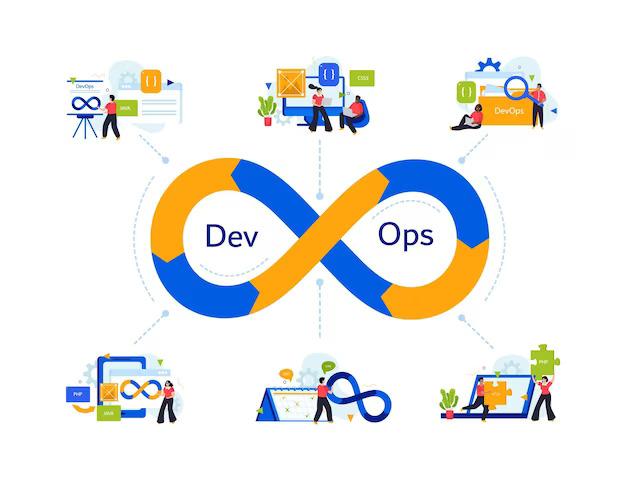DevOps has revolutionized software development and deployment, enabling organizations to deliver high-quality applications at an accelerated pace. To achieve DevOps success, it’s crucial to leverage the right set of tools that streamline processes, enhance collaboration, and improve overall efficiency. In this blog post, we’ll explore the top 10 DevOps tools you should know in 2023. These tools have gained significant popularity and are poised to shape the DevOps landscape in the coming year.
1. Jenkins
Jenkins remains a cornerstone of the DevOps ecosystem. It is an open-source CI/CD tool that enables automation of build, test, and deployment processes. With an extensive plugin ecosystem and a strong community, Jenkins offers flexibility and customization options for seamless integration into diverse development workflows.
2. Kubernetes
Kubernetes has become the go-to container orchestration platform, empowering organizations to manage and scale containerized applications efficiently. With features like automated scaling, load balancing, and self-healing capabilities, Kubernetes simplifies deployment and management of applications in both on-premises and cloud environments.
3. Ansible
As a powerful configuration management tool, Ansible automates the provisioning and configuration of infrastructure resources. Its agentless architecture, declarative language, and extensive library of modules make it easy to manage complex environments consistently.
4. Terraform
Terraform enables Infrastructure as Code (IaC) practices by providing a declarative language to define and provision infrastructure resources across various cloud providers. With Terraform, organizations can achieve consistent and reproducible infrastructure deployments, reducing manual errors and ensuring scalability.
5. Git
Git is a distributed version control system that plays a vital role in collaboration and code management in DevOps. Its branching and merging capabilities facilitate parallel development, enabling teams to work simultaneously and merge code changes seamlessly.
6. Docker
Docker revolutionized the way applications are packaged and deployed. Its lightweight containerization approach provides consistency across different environments, simplifies application deployment, and enables efficient resource utilization.
7. Prometheus
Prometheus is a leading open-source monitoring and alerting solution. It collects and stores metrics from various sources, allowing real-time analysis and visualization of system performance. With its powerful query language and integration capabilities, Prometheus offers deep insights into application and infrastructure health.
8. Jira
Jira is a widely used project management tool that facilitates agile development methodologies. It helps teams organize tasks, track progress, and collaborate effectively. Jira’s integration with other DevOps tools makes it a central hub for project management and issue tracking.
9. Grafana
Grafana is a popular data visualization and monitoring tool that integrates with various data sources, including Prometheus. It allows teams to create interactive dashboards, track key metrics, and gain actionable insights from complex datasets.
10. ELK Stack (Elasticsearch, Logstash, Kibana)
The ELK Stack provides a comprehensive log management and analysis solution. Elasticsearch acts as a scalable search and analytics engine, Logstash handles log ingestion and parsing, and Kibana offers powerful visualization capabilities. Together, they enable centralized log management, troubleshooting, and performance analysis.
Conclusion
These top 10 DevOps tools are poised to make a significant impact in 2023, empowering organizations to build scalable, automated, and reliable software delivery pipelines. By leveraging these tools, teams can streamline processes, enhance collaboration, and achieve faster, more efficient deployments. Stay updated with the evolving DevOps landscape and explore how these tools can fit into your specific development and operations workflows to drive success in the year ahead.



